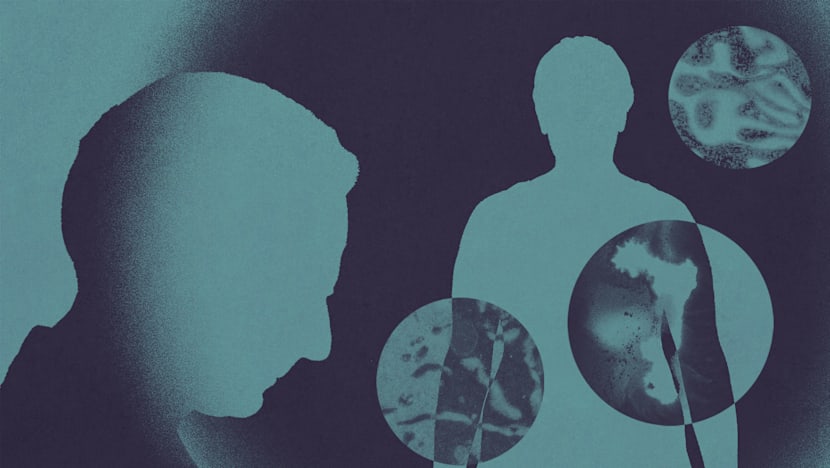Health
Rising Rates of Early-Onset Cancer Spark Urgent Research

A concerning trend has emerged in cancer statistics, revealing that more young people are being diagnosed with various types of cancer. A report published by researchers at the National Cancer Institute highlights a significant increase in the rates of 14 cancers among individuals under 50 years of age in the United States between 2010 and 2019. This development has drawn attention from medical professionals, including Dr. Kimryn Rathmell, a kidney oncologist who recognized this alarming trend a decade ago during her tenure at Vanderbilt University.
Dr. Rathmell first observed the phenomenon when she treated an unusually young patient—a mere 18 years old—with metastatic kidney cancer. Initially believing these cases to be anomalies, her perspective shifted as comprehensive data emerged, indicating that this was a widespread issue affecting many young adults. The report has catalyzed further investigations into the factors contributing to this rise in early-onset cancer, particularly among those born in or around the 1950s.
Historical Context and Lifestyle Changes
The increase in early-onset cancers, while still relatively rare, has been consistent since 1990, resulting in thousands of additional cases each year. For instance, in 2019, there were 4,800 more early-onset breast cancer diagnoses than expected based on prior rates. While advancements in screening and detection are likely contributing to these statistics, experts are increasingly focused on other underlying factors that may be at play.
Dr. Shuji Ogino from Brigham and Women’s Hospital points to the 1950s as a pivotal moment in public health, noting that individuals born during that decade began showing higher rates of early-onset cancer in the 1990s. The research indicates a “birth-cohort effect,” suggesting that environmental and lifestyle changes that have become prevalent over the decades could be influencing cancer rates.
Significant lifestyle shifts—such as decreased physical activity, higher consumption of processed foods, and increased exposure to chemicals—have altered daily living standards since the postwar era. According to Dr. Yin Cao, an associate professor at the Siteman Cancer Center, determining the specific contributions of these factors is challenging, as establishing causal relationships often requires extensive research.
Obesity and Dietary Patterns as Risk Factors
A strong correlation exists between rising obesity rates and early-onset cancer. Citing a review of nearly 15 million cancer cases in the United States, Dr. Cao noted that the incidence of six out of twelve obesity-related cancers increased among young adults from 1995 to 2014, with younger generations experiencing the steepest rises.
Research has shown that obesity may lead to metabolic dysregulation, chronic inflammation, and changes in the gut microbiome, all of which could heighten cancer risk. Furthermore, alcohol consumption patterns have shifted, with more women engaging in heavy drinking, which is known to increase the risk of certain cancers, including breast cancer.
Breast cancer, in particular, disproportionately affects young women. Factors such as earlier onset of menstruation and delayed first pregnancies contribute to increased risk. Dr. Sherene Loi from the Peter MacCallum Cancer Center in Melbourne explains that the hormonal fluctuations associated with menstrual cycles create opportunities for genetic mutations, increasing the likelihood of cancer development.
Genetic Alterations and Environmental Influences
Emerging research indicates that certain exposures, particularly during early life, can alter genetic codes and accelerate cancer development. Dr. Karuna Ganesh from Memorial Sloan Kettering Cancer Center has studied how gut cells respond to stressors like inflammation, suggesting that these changes can lead to aggressive cancer behaviors in young individuals.
Additionally, a specific pattern of mutations linked to a bacterial toxin known as colibactin has been found to occur more frequently in early-onset colorectal cancer patients compared to older patients. Professor Ludmil Alexandrov from the University of California, San Diego, noted that exposure to this toxin typically happens in early childhood, potentially placing children on a “fast track” to cancer.
The implications of these findings are profound. As scientists continue to explore the interplay between environmental factors, genetic predispositions, and lifestyle choices, they emphasize that early intervention is crucial. Changes in lifestyle, such as reducing alcohol intake, maintaining a healthy weight, and avoiding smoking can significantly lower cancer risk, with an estimated 40 percent of cancer risk attributed to such modifications.
The rising rates of early-onset cancer demand urgent attention from researchers and healthcare professionals. As more data becomes available, understanding the root causes of this troubling trend will be essential in developing effective strategies for prevention and treatment.
-

 Business5 months ago
Business5 months agoKenvue Dismisses CEO Thibaut Mongon as Strategic Review Advances
-

 Lifestyle4 months ago
Lifestyle4 months agoHumanism Camp Engages 250 Youths in Summer Fest 2025
-

 Sports4 months ago
Sports4 months agoDe Minaur Triumphs at Washington Open After Thrilling Comeback
-

 Sports5 months ago
Sports5 months agoTupou and Daugunu Join First Nations Squad for Lions Clash
-

 Top Stories5 months ago
Top Stories5 months agoColombian Senator Miguel Uribe Shows Signs of Recovery After Attack
-

 World5 months ago
World5 months agoASEAN Gears Up for Historic Joint Meeting of Foreign and Economic Ministers
-

 Health4 months ago
Health4 months agoNew Study Challenges Assumptions About Aging and Inflammation
-

 Business5 months ago
Business5 months agoOil Prices Surge Following New EU Sanctions on Russia
-

 Entertainment4 months ago
Entertainment4 months agoDetaşe-Sabah Violin Ensemble Captivates at Gabala Music Festival
-

 Entertainment4 months ago
Entertainment4 months agoBaku Metro Extends Hours for Justin Timberlake Concert
-

 Top Stories5 months ago
Top Stories5 months agoRethinking Singapore’s F&B Regulations Amid Business Closures
-

 Business5 months ago
Business5 months agoU.S. House Approves Stablecoin Bill, Sends to Trump for Signature









